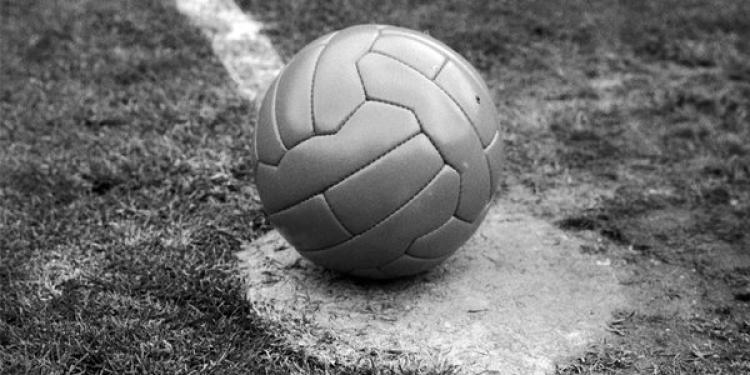Football In England Before The Premier League
Posted: August 16, 2014
Updated: October 6, 2017

Before there was a Premier League the English played 650 years of football so we take a quick look at some of the signposts that lead to the football competitions we know and love today.
England, it is said, is the home of football. Although let’s be honest, given England’s performance in the last World Cup I think there is evidence to suggest football has moved out of home now, possibly after an big argument. For a long time, a fair few hundred years or so, England completely dominated the sport, which would have been great gambling news, if they hadn’t been the only people playing it. When they were allowed to.
The first reference to a game actually called football comes in 1314 when a decree from Edward II, King of England and part time enigma, was announced by Nicholas de Farndone, the Lord Mayor of the City of London. The decree banned it. Which is perhaps not the most auspicious start, but does mean someone somewhere had the foresight to see that it would only ever lead to FIFA.
Bans, of course, don’t last forever and there are many accounts, spread over the next five hundred years, of villagers, townsfolk, and then factory workers enjoying this populist, working class game as it developed… to the point where some rich, upper-class toffs at a number of schools so private they called them public, decided what it really needed was some rules.
The Football Association codified these rules and ran the knockout competition, the FA Cup, in 1871 with a full league following in 1888 with Preston North End winning all 22 of their fixtures and the title. It perhaps says much for English forethought that it wouldn’t be until 1891 that a Liverpudlian engineer, John Brodie, would invent the football net, an oversight much in need of a solution.
Two Wars And The World Cup
Pre-Premier League Football In England
• A history of development and evolution
• From village green to mobile betting
• Premier League the child of a glorious mother
Despite the hostilities of the First World War suspending professional play, many of the players joining up, by 1923 there were three divisions, international matches were regularly played and the newly opened Wembley Stadium saw Bolton Wanderers beat West Ham United two nil in what is known today as the “White Horse Final”, the first cup final to be played at the now famous ground.
With World War Two came another six years without professional football but in the immediate aftermath the now great Manchester United emerged under their new manager Matt Busby, the first team to play in the European cup and league winners in 1956 and 57. However the Munich Air crash that killed a number of Man Utd’s players in 1958 prevented continued success, but a rebuilt team won the FA Cup just five years later.
Having predicted at the 1962 world cup that England would win next time, the legendary Alf Ramsey steered the national team to the now endlessly mentioned World Cup win of 1966. In many ways the sixties were the glory days of English football, huge crowds, little trouble, and some marvelous characters such as manager Bill Shankly, famous comb-over Bobby Charlton and the irrepressible recreational drinker and UK gambling laws tester George Best.
The 1970s saw English teams do well in Europe and display some wonderful football in the league and FA cup but the national side didn’t follow these examples displaying the sort of performance for which the England team is now rightly well known and failing to qualify for the world cup, twice. The FA cup produced some surprises with Manchester United being beaten by lowly Southampton in 1976 and West Ham, another smaller club, winning it twice.
Last Decade Of The Old Era
The 1980s were a terrible decade for everything except catchy pop music and football was no different. Falling attendances, hooliganism and a national team that fell apart as soon as someone said “Penalty Shootout” all took their toll on English football as formerly glorious teams scrapped it out to break cycles of no trophies and no titles. But even in these trying times there were glimmers of glory to come with Alex Ferguson arriving at Manchester United and players like Ryan Giggs and Paul Gascoigne emerging onto the scene.
The 1990s were to see the end of the football league as it had been for over a hundred years, the top flight of football under massive pressure to change, particular of the financial variety. The lifting of the players pay cap some two decades before had led to a steady rise in the cost of both transfer fees and wages to the point where profitability rested on clubs maximizing returns.
Some liken this to a dark sweeping cloud of commercialism and corporate interest that infected and polluted a once great institution, but the reality is it prevented a lot of the larger, more well known, clubs going bust and introduced a much needed burst of investment that modernized some of the stadiums that had, as Hillsborough had perhaps proved, become dangerous.
The Premier League has undoubtedly been a big step for English football but the results speak for themselves as ever greater numbers of people around the world getting to see some of the best footballers play in the hardest league on the planet will millions now bet on sports in the UK. For two decades now the Premier league has been just that, a league out in front and showing how it should be done, a state of affairs that looks likely to continue for some time to come.
Read more about the FA Premier League past, present and future here.












